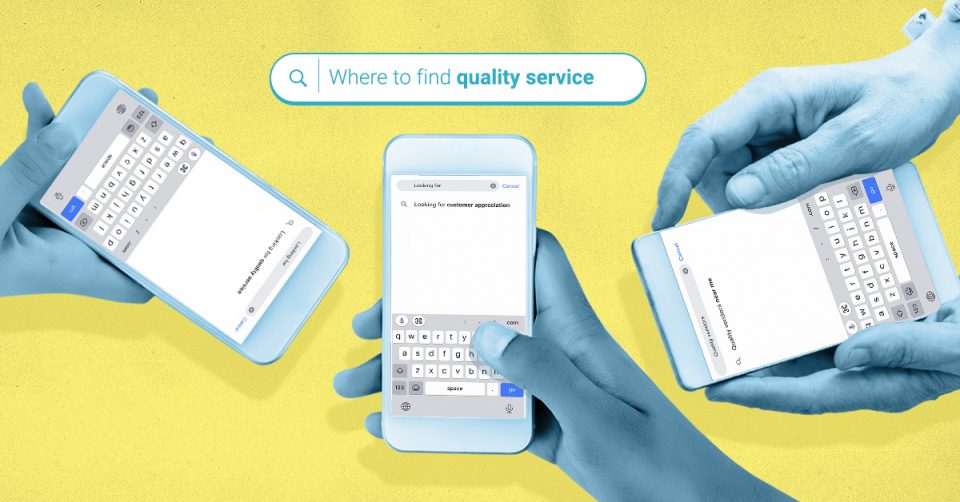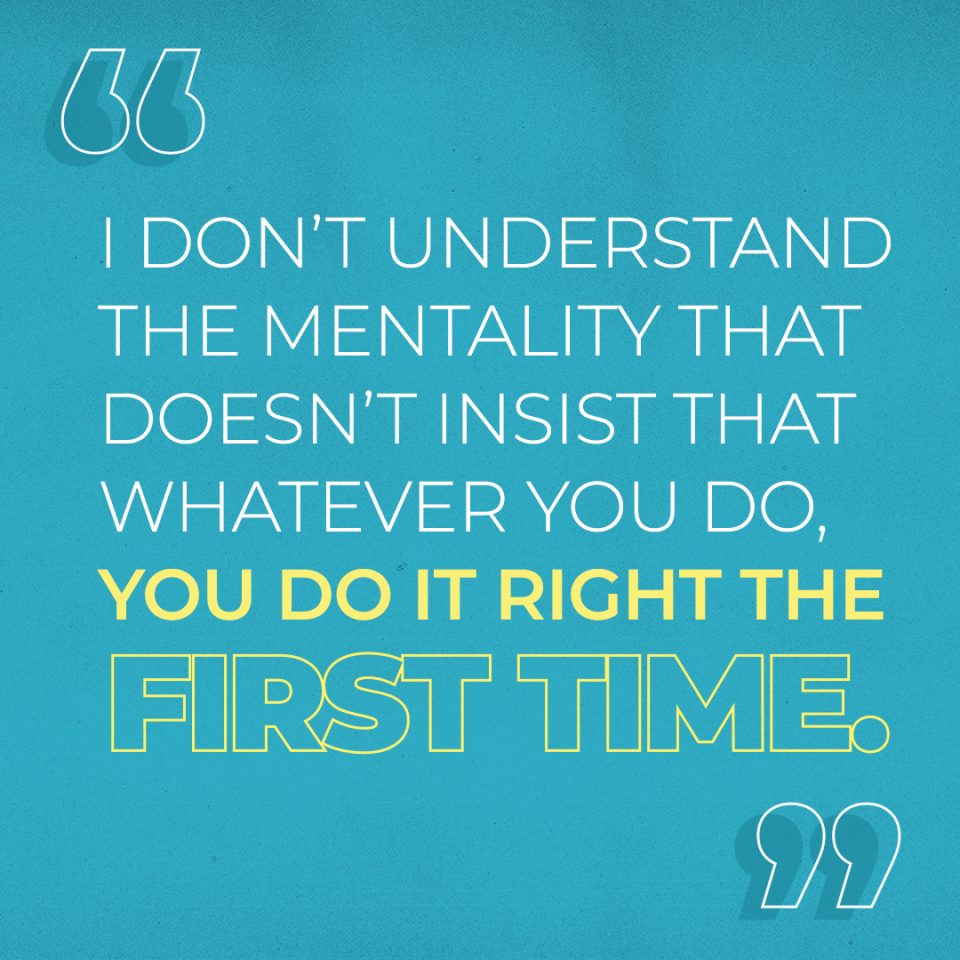The Death of Quality – Is Technology Killing Your Customer Experience?

OK, I’m going to give you a warning right upfront. What follows is likely to be more of a “rant,” versus an objective look at my theme for this month’s blog: The Slow Death of Quality. But here’s my general belief: we are a society that has gotten lazy. We have lived the good life for so long that it almost feels like it’s become an entitlement. Our grandparents, for those of us born in the ’60s, were a part of the Greatest Generation, a generation born during the remnants of the Great Depression and then grew into adulthood, whether they were ready or not, during WWII. Afterwards, they went on to create an industrial, scientific and technological society and economy second to none. Our nation was resilient, and in many ways, self-sufficient. I’m quite sure it wasn’t utopia, because I grew up in the era of Vietnam — watching our servicemen and women ridiculed and protested on the streets and on the evening news. But it was a time when I feel like we did and built things that lasted.
Today, I don’t get that feeling. To be honest, I haven’t had the feeling for a long time. It just feels like it’s been a slow ride downhill when it comes to quality products or service. If you were to ask me what the tipping point might have been, I’m not sure I could give you an exact answer. However, I suppose one thought might be to take a look at technology.
As one simple example, let’s look at the smartphone. One of the most significant developments of all time, mind-boggling computing power that fits in the palm of your hand. A piece of equipment that literally changed the way hundreds of millions, if not billions, of people communicate, work, learn and play… and for the most part is a brilliant example of planned obsolescence. Not to mention that this same technology gets the blame for leading to irrevocable – good and bad – changes to a wide number of industries: telecommunications, news media, entertainment, gaming and the health industries, being just a few.
So, what happens when your phone gets too old? “Sorry, we don’t ‘support’ that OS (operating system),” is the common reply. The solution: buy another one. Today, people pay $500 to $1,300 or more for the privilege of owning a phone that probably won’t last more than five years before its usefulness starts to wane. Up until just a few years ago, my parents still had a hard-wired landline connected to one of the phones I grew up with. Their only change over the past 40+ years was going from rotary dial to push button. Too young to know what rotary-dial phones were? Take a trip to the Smithsonian or just Google it. There’s irony for you!
The Tesla Paradox
There are a great many people in our society caught up in the latest and greatest, taking the path of least resistance, the roadway that’s expedient. Whether it’s an issue of time, energy or money, “good enough is good enough” seems to be a consensus of thought for many people.
A recent Forbes article provides a crazy illustration of this. In an article from July 25, 2020, David Sargent, VP, Global Automotive at J.D. Power & Associates, stated that “Tesla’s quality problems are worse than those of any other manufacturer in its recent survey.” In fact, according to the Wall Street Journal, the survey found that “Tesla vehicles, in their first time appearing in the survey, were found to have 250 problems per 100 vehicles compared with an industry average this year of 166 problems.”
But in what is being called the Tesla Paradox, it is being suggested that “people who own Tesla vehicles are so excited about them that they are willing – within limits – to live with their serious quality problems.”
Really?? That’s some crazy brand loyalty! And while I’m not meaning to suggest that Tesla is intentionally building poor-quality cars, these are the same people who own SpaceX – whose “family of launch vehicles and spacecraft were designed from the beginning to take humans to Earth orbit, the Moon, Mars and beyond.” This would seem to me to be a seriously zero-defect endeavor. So, how do you think you can take me to Mars when you can’t even make a car without hundreds of defects? I’m a bit skeptical.
Ok, so maybe you can’t afford a Tesla and you think, “who cares, that’s out of my league anyway!” Fair point. So, when was the last time you went out to eat at a restaurant (or remember going out pre-COVID-19) and got really great service? My dining routine for business used to take me to a variety of places, from Michelin-starred restaurants right down to America’s favorite fast-food chains and everywhere in between. And I swear that with the exception of those Michelin-starred venues, which were an infrequent luxury, it seems like most people/places could care less if you’re there to dine with them or not. I will say, Chick-fil-A seems to be one of those chains that is cut from a different cloth. They either hire better people, they train them better, or a combination of both, because I generally leave there feeling appreciated as a customer. Not so, other places that can and do frequently make me feel as though I’m a serious imposition to their day. What happened here? Is it wrong to expect something more for my hard-earned money?
Good enough, really?
Honestly, I don’t care whether you produce a product or a service. I don’t understand the mentality that doesn’t insist that whatever you do, you do it right the first time. And do it with pride!

I’m certainly not going to sit here and blame the likes of Apple. But I do think that the development of the smartphone has contributed to making people lazy and lazy thinkers. While it’s true that an iPhone or an Android won’t necessarily solve our deepest complex analytical problems (although with developing AI, it’s simply a matter of time), think about how you used to solve problems (if you’re old enough to think back that far). We used to ask people; talk to them; work with them; interact on a level that today feels much less personal and satisfying. Today, customer service means offering a chat feature. It means instant messaging. It means Googling. Speaking out of both sides of my mouth here, yes, it’s incredibly helpful when I need to learn the ins and outs of how a septic system works. Google it and boom…five minutes later, I’m educated. But on the flip side, working with a septic system builder, which I had the misfortune of having to deal with over the July 4th holiday, not only fed me information that I couldn’t get on Google, but it put me in face-to-face contact with a human being, who just happened to be really good at customer service – at answering my questions, putting my fears at ease, helping me get to solutions that really couldn’t come from doing it the “easy way” – by surfing the net. That was great customer service and a quality effort at what might be considered a shitty job (pun intended).

If we believe our contribution to society – what we do – has value, then we should raise our efforts to the level of quality and value that we, ourselves, would expect, taking pride in our product or service in the honest belief that good enough is NOT good enough! The only thing good enough is our best. And if we give our best, then we have reason to be proud knowing that we are contributing to the health and wellbeing of ourselves, our family and our national economy. And in offering our best, I’m reminded of a quote by author and speaker Simon Sinek, “The mind can be convinced. But the heart must be won.” Taking pride in our work and building quality into everything we do is a great way to start winning hearts and convincing minds.
– musings from the T-Suite
@42.2661° N, 89.2412° W
